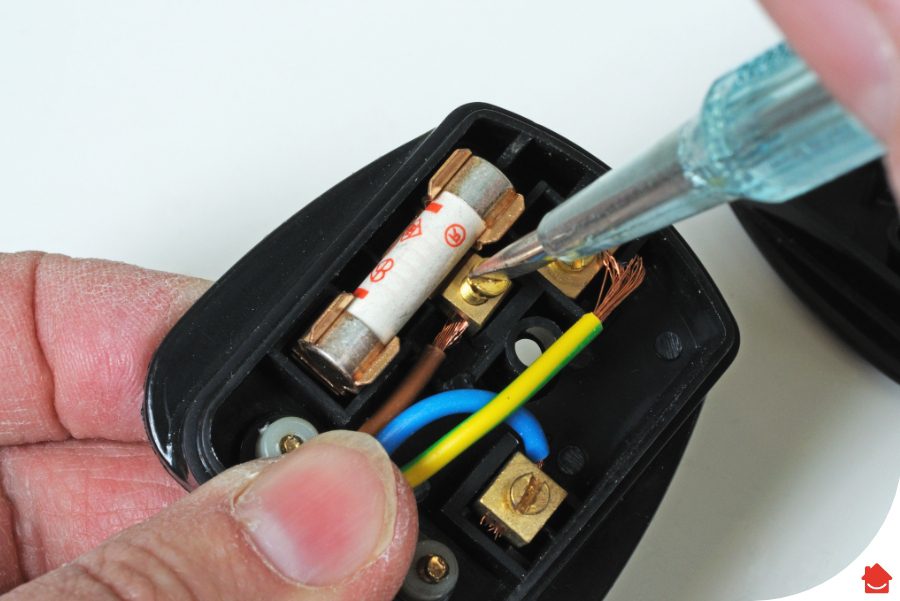Electrical advice
Why is my electric bill so high?
28 Oct 2021 • 5 minutes


Here’s the short answer: Yes, faulty wiring can cause an increase in your electricity bill. However, there are several possible reasons your bill is so high, other than faulty wiring. In this article we’ll list the common reasons for a higher electric bill to help you investigate what’s causing it. If none of these fit, call an electrician to troubleshoot your home wiring.
If you have an abnormally high electric bill, it’s worth considering all the possible factors that can run up expensive electric bills before you blame faulty wiring and call an electrician.
Here are some of the most common reasons of electricity overconsumption:
Faulty electrical wiring can be extremely dangerous, resulting in home emergencies. Electric wiring in any space in your home where it can become loose or frayed can pose a problem. These wires can easily connect with other electrical objects, causing them to heat up and consume electricity – making you spend a small fortune. Apart from the financial aspect, faulty wiring can also pose a danger to your health through the risk of electric shocks or even electrical fires.
It’s important to get damaged electrical wiring checked out as soon as you suspect that’s what’s causing the issue. There’s a chance faulty wiring can become dangerous and lead to home emergencies like house fires or electrocution.
For a safe household and your own peace of mind, HomeServe offer electrical breakdown cover so you’ll have a home expert spotting any minor issues before they become serious.
The big ‘white goods’ appliances in your home or property – things like your dishwasher, refrigerator and tumble dryer, do a fantastic job of making daily life easier for us in the developed world. So it stands to reason that they’re also the biggest energy consumers in any household.
However, if you’re using these appliances as normal but your electricity bill suddenly increases, then there’s typically going to be a fault in the appliance that’s causing it to consume more energy than usual.
If you’ve got a faulty appliance, it can potentially overheat or break down. That’s why it’s crucial to get it checked out by a professional as soon as you notice something is wrong.
The most reliable way to find out if one of your appliances has become power-hungry is to get an electricity usage monitor. It’ll tell you exactly how much electricity a device or appliance is using. We would suggest you monitor your appliances.
Sometimes it’s not your actual electricity consumption that’s the problem, it’s the reporting of it. If your property’s electricity meter goes rogue, it can run up your electricity bill very quickly. Thankfully there’s a simple way to check whether your meter is faulty or not.
Just switch off your mains electricity and wait a few minutes – if your meter is still running while everything is turned off.
If all your appliances and wiring are in good condition and your bills are still too high, perhaps your house isn’t sufficiently insulated. If you combine this with an electric boiler or you use electric heaters or radiators around your home, the warmth they generate will be escaping through the roof, walls, floors and gaps in windows and doors. Check our guide ‘How to insulate a house’ for all the information you need regarding roof insulation, cavity wall insulation and plugging the gaps around your home.
It’s common sense to look at your most recent electric bill and compare it with previous months. In particular look at your current and past usage – is it the same as before, or higher? Electricity suppliers do hike their prices once a year and there has been a sharp increase in 2021.
Have you installed a new appliance or appliances in your home recently? It’s common sense that any new appliance will add more to your electricity bill. However, if you’ve purposely bought energy-efficient appliances to replace older, less-efficient ones, then you shouldn’t expect a higher electric bill.
Are you using an electric heater a lot in the winter? Or an air conditioner in the summer? These two can guzzle power, which will certainly increase your energy bill.
Homeowners insurance does tend to cover the electrical wiring in your property, but the coverage offered will vary depending on several factors, including if your home is older. Electricians recommend getting your home rewired every 10 years, because of normal wear and tear. Older homes often have older ‘knob-and-tube’ wiring or aluminium wiring, which it’s better to update if you can, because it’s more prone to overheating.
With HomeServe electrical breakdown cover for wiring, fusebox breakdowns and broken sockets, our Home Experts will help make sure that unexpected electrical problems don’t leave you in the dark. Our repairs service can also help you with other household issues like one-off repairs to your boiler or appliances. So don’t hesitate to get in touch.
There are a few reasons why your electricity bill could be high:
The most reliable way to find this out is to get an electricity usage monitor. It’ll tell you exactly how much electricity a device or appliance is using. Just plug the monitor into a socket and then plug your appliance into the monitor.
Our help & advice articles cover Plumbing, Home heating, Electrical, Energy-saving and Home maintenance.